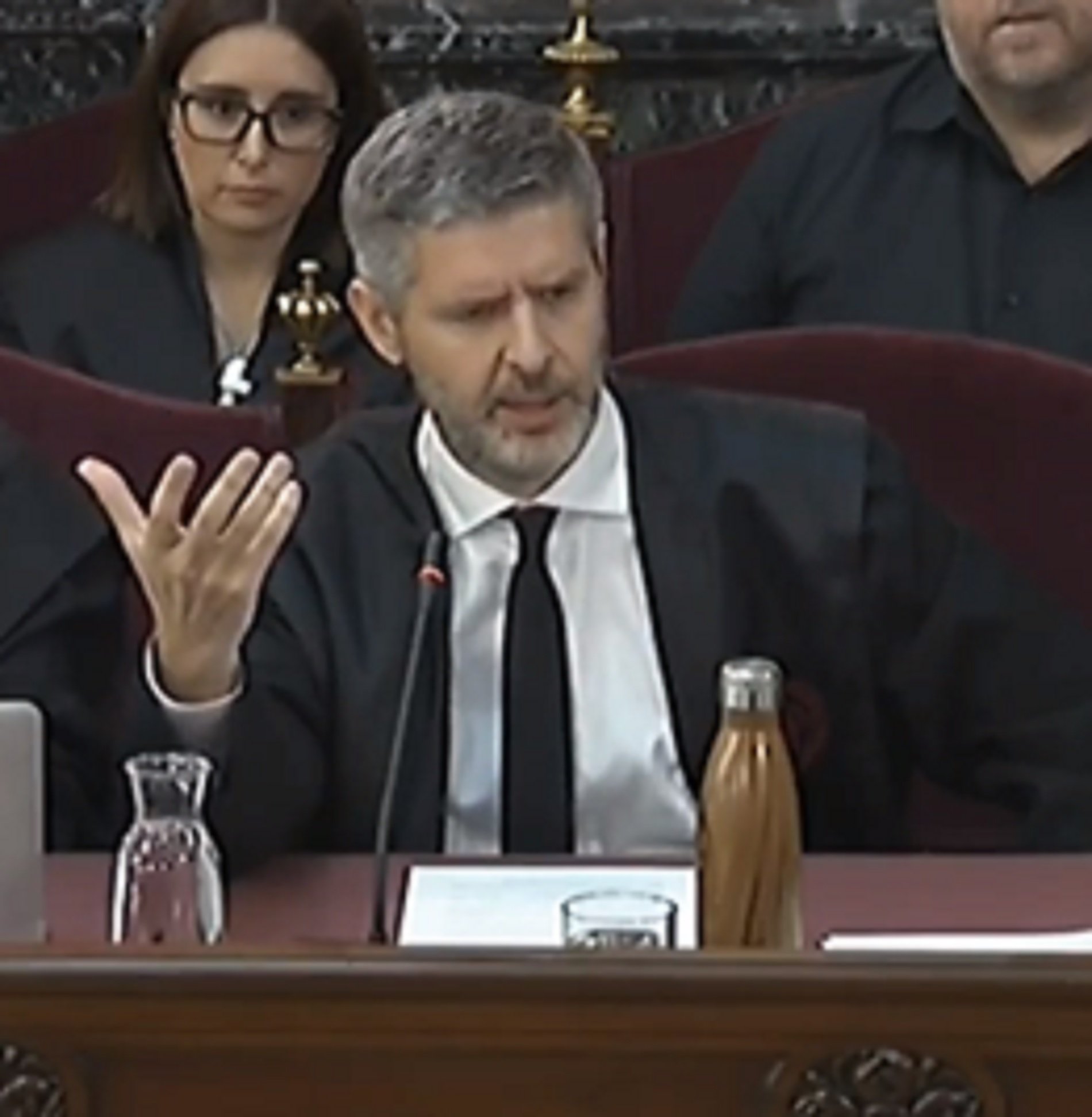It was Andreu van den Eynde who began today's final defence statements at the Catalan independence trial. The lawyer representing Oriol Junqueras and Raül Romeva spoke for almost two hours in a discourse ordered by subjects, not by defendants, and questioning the entire investigation as well as the prosecutions' narratives.
"Prosecutions" in plural because there are three in this case, and Van den Eynde began by pointing out the "antithetical" positions of the two most important, those of the public prosecutors and the state solicitors. "There is a monumental disagreement between the prosecutions' theses," he said, mentioning the contradictions and differences between the narratives - particularly related to the issue of violence - as he led into the focus of his final statement: he asserted that the court case was based on an illegal investigation that began in early 2015, leading to a general case against the independence movement which had thrown out nets to catch different actors. It was based on a combination of "crimes from the 18th century and from the future," he said.
The lawyer stated that there was little real evidence presented by the prosecution, telling the court that "an ideology is being persecuted." "Disobedience is being confused with rebellion," was how Van den Eynde summed it up.
Everything that we have seen comes from an illegal initial case
"Enfocats is nothing" he said, dismissing the PowerPoint document which was one of the key documents presented by the prosecutors, noting that its authorship was unknown, nobody involved in the case had heard of it or and it was not mentioned in any communication. "The strength of Enfocats is to have allowed the word Enfocats to be said a thousand times."
Van den Eynde questioned the entire investigation. In fact, he described it as "illegal": "Everything we have seen here comes from the illegal case."
"The prosecutions and police have been referring to a series of wild cards such as 'the white paper', the 'roadmap', 'Enfocats'...", said Van den Eynde, as part of the "general constitutive case" against the independence movement which had been under investigation since the beginning of 2015 "with a crystal ball".
20th September and 1st October
"The call for protests on 20th September 2017 was spontaneous and not directed. It occurred in the way that viral phenomena work." "There was no assault" against the Catalan economic ministry building that day, said the lawyer, recalling the numerous calls made to maintain a calm attitude that day.
Neither was there any evidence of violence on the 2017 referendum day, said Andreu van den Eynde. He was critical of the police. "Civil Guard colonel Perez de los Cobos failed to fulfil his role as coordinator," he said, asserting that "no one has spoken of there being generalized violence."
On the action of the Spanish police on October 1st, he said that "when they arrived at voting centres, nobody expected them, and certainly nobody expected them to have a baton-charge attitude". "What did people do? They sat down on the ground, they shouted, they raised their arms, they let out insults. Sure, that's something that comes out from inside you. But the actual instances of violence [from the public] that we have seen, which can be counted on the fingers of one hand, is disconnected from this dynamic," he said.
A rebellion must be armed
Van den Eynde asked: where was the uprising that was essential for the crime of rebellion? Also, he proposed, if there had been one, why were the people that went to vote not on trial. "This is not mind control, nor is it a sect," he said.
"The uprising must be armed" according to the law, said Van den Eynde, arguing that rebellion is a "military-related" crime. "Declaring independence is not a crime, staging an uprising with weapons is. That's what the legislator said," and the lawyer emphasized the Christian and pacifist values of his clients, Oriol Junqueras and Raül Romeva.
"What we are putting on trial is the climate and atmosphere of a society", he insisted, saying that rights had been violated, including the presumption of innocence. "Do we want a simple world where no one protests?" was the rhetorical question that Van den Eynde directed at the prosecutions, reminding them that "protest is criticism of public power. Protest is not intimidation or hatred."
"Let's present an outstretched hand to resolve the conflict. Let's hope for a verdict that resolves conflicts," said Andreu van den Eynde to conclude his speech.

